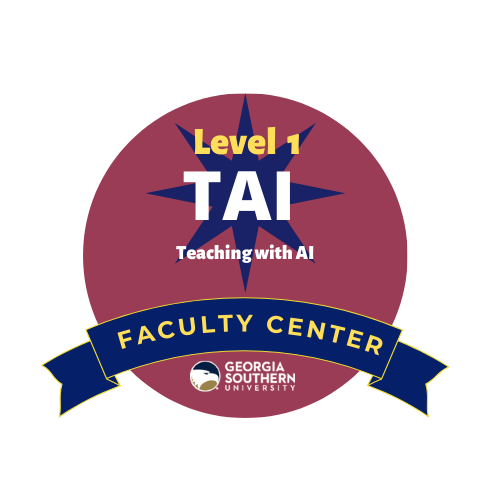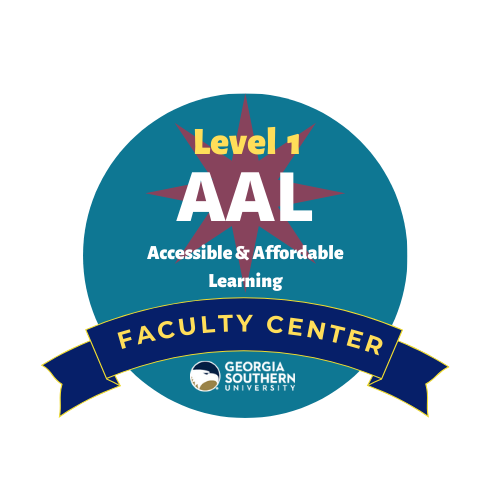Badging Process Details
The Faculty Center Badging Program is designed to assist faculty in documenting professional growth in teaching, research, scholarship, and leadership development.
- Register for a Faculty Center workshop on the Workshop Calendar webpage
- After attending the workshop, you will receive an automated email with the following Action Plan prompts:
- Write a 2-3 sentence summary covering the workshop’s highlights and what content was the most informative and useful for you.
- Describe how you will implement a tool, strategy, or idea from today’s workshop in your teaching or professional context.
- After submitting 4 Action Plans in a badge track, you will receive an automated email with the following Capstone Reflection prompts:
- What strategies and/or knowledge gained from this workshop most influenced your approach to teaching?
- Review the action plans you created after attending each workshop for this badge. List implemented ideas and briefly describe the process of implementation.
- Assess the effects of those implemented changes. What was successful? Provide concrete evidence of how student learning improved or benefitted from your changes (student behavior, test scores, feedback received, etc.)
- Explain plans for future growth, implementation, further training, incremental improvements, etc.
The Faculty Center has partnered up with other departments across the university to offer workshops in their fields of expertise.
- Georgia Library Resources and Services for Faculty
- The Office of Institutional Assessment and Accreditation
- The Office of Research
- MomentumU (USG)
- GS HIPs Implementation Team
- Learning Technology Services (LTS)
- Institutional Support and Resouces Center
- No Cost/Low Cost Open Educational Resources (OER)
- Office of Adult and Online Learning
- Schloarly Communications Library Guides
If you have any questions about the badging program or would like to become a partner, please contact the Faculty Center at facultycenter@georgiasouthern.edu.



